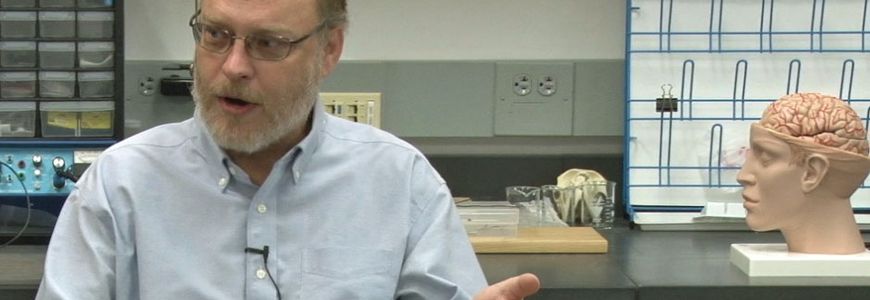Cracking the Neural Code for Speech
Contemporary Science Issues and Innovations January 27, 2012
Frank Guenther, Ph.D., Professor, Department of Speech, Language, & Hearing Sciences; Professor, Department of Biomedical Engineering; Associate Director, Graduate Program for Neuroscience, Boston University.
Science for the Public visits the Neural Prosthesis Lab at Boston University to talk with Professor Frank Guenther and his colleagues and to see a demonstration of their famous Brain-Computer-Interface for speech.
Speech is the most complex form of human motor coordination. When the brain’s speech control circuits are impaired the result can be devastating. The solution requires cross-disciplinary expertise, and Frank Guenther brings to the challenge an awesome set of skills from electrical engineering, neuroscience, and rehabilitation.
Professor Guenther and his colleagues at the Neural Prosthesis Laboratory of Boston University have developed the leading model of the brain mechanisms underlying speech. This model is an invaluable tool for understanding and treating speech disorders ranging from congenital disorders like stammering to those resulting from damage to the nervous system, including stroke, injury and Lou Gehrig’s disease.. We view a demonstration of the NPL's computer synthesizer, which makes it possible for paralyzed individuals to communicate.
This brain-computer interface device has received a lot of media coverage. Here are some examples:
The Mind Reader: How Frank Guenther Turns Thoughts into Words
National Science Foundation article, video on Frank Guenther's work
Device Turns Thoughts Into Speech: Discovery News
PLoS ONE: A Wireless Brain-Machine Interface for Real-Time Speech Synthesis
Machine Translates Thoughts into Speech in Real Time
The CNS Lab at Boston University (with links to articles, news videos)

